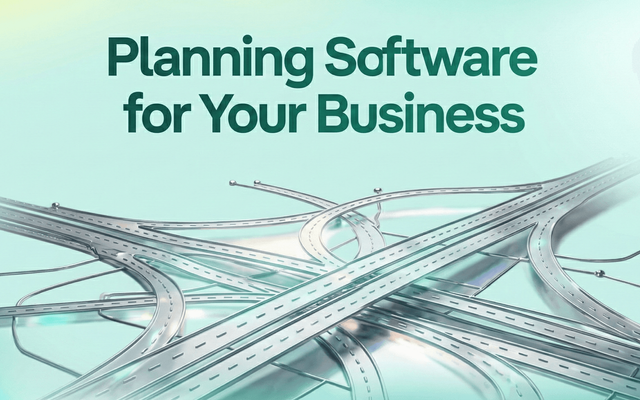
Let's face it - the logistics industry is changing faster than ever before. Global supply chains are becoming increasingly complex, while customer expectations continue to climb higher and higher. If you're still using manual processes or outdated systems, you're probably feeling the squeeze - lost shipments, delayed deliveries, and costs that just keep rising.
Here's the thing: software used for logistics management isn't just some fancy add-on anymore. It's become absolutely essential for keeping up with today's market. Companies that implement it can transform how supply chains are managed, from real-time tracking to smarter decision-making based on actual data.
Understanding Logistics Management Software Features
Think of software for logistics management as your supply chain's command center. Whether you're juggling shipments, keeping track of warehouse stock, or managing a fleet of trucks, this software helps keep everything running like clockwork.
When you bring this software into your daily operations, you'll notice the difference right away. Those tedious, repetitive tasks? Automated. Your supply chain visibility? Crystal clear. Those costly manual errors? Gone. Instead of putting out fires all day, you can spot potential problems before they blow up and keep your customers happy.
Why This Software Makes Such a Big Difference
Keep Eyes on Your Shipments 24/7
Remember the days of wondering where your shipments were? Yeah, those are over. With real-time tracking, you'll always know exactly where everything is. Using GPS, RFID, and IoT devices, you can watch your shipments move in real-time and jump on any problems before they cause delays.
Say Goodbye to Human Errors
Let's be honest - manual logistics work is slow and prone to mistakes. Who hasn't dealt with misplaced shipments or invoice errors? This software takes care of the boring stuff like shipping labels and invoicing, so your team can focus on more important things.
Make Decisions Based on Real Data
Moving goods efficiently isn't just about getting from point A to point B. Good logistics software crunches the numbers across your supply chain to help you find better routes, cut fuel costs, and manage inventory smarter. You can even predict busy seasons and negotiate better deals with suppliers.

The 5 Essential Logistics Management Software Features You Need
1. Real-Time Tracking That Actually Works
Gone are the days of playing phone tag to locate a shipment. Modern tracking gives you the whole picture - where everything is and when it'll arrive. Your customers will love the transparency, and your team will love knowing exactly what's going on.
Why this really matters:
Your customers get accurate delivery times (no more angry calls about late shipments)
Your team can spot lost shipments before they become a problem
When something goes wrong (weather, traffic, you name it), you can fix it fast Using GPS, RFID, and IoT tracking means fewer surprises and smoother deliveries.
2. Smart Route Planning & Fleet Management
Getting deliveries right isn't just about speed - it's about finding that sweet spot between time, cost, and fuel efficiency. Good route optimization looks at everything happening right now - traffic jams, weather problems, how much fuel you're using - to find the best way to get things where they need to go.
What you'll love about it:
Uses less fuel by avoiding unnecessary detours
Gets deliveries there on time by avoiding traffic headaches
Keeps your vehicles healthy and your drivers happy For companies with lots of vehicles on the road, these little improvements add up to serious savings.
3. Warehouse & Inventory Management That Makes Sense
We all know the inventory dance - too much ties up your money, too little leaves customers waiting. When your warehouse system talks directly to your logistics software, you'll always know exactly what you have and what you need.
How it makes life easier:
Keeps your stock levels just right
Makes sure the right products go out every time
Tells you when to reorder before you run out It's like having a super-organized warehouse manager who never takes a day off.
4. Order Processing That Just Works
Nobody likes pushing paper. Modern logistics systems handle all that boring stuff automatically - from creating invoices to updating shipment status. It's faster, more accurate, and way less mind-numbing than doing it by hand.
The good stuff:
Creates all your paperwork automatically
Keeps digital copies of everything for when you need them
Works with your other business software so everyone's on the same page Your team can stop shuffling papers and focus on actually growing the business.
5. Smart Analytics That Help You Plan Ahead
Modern logistics isn't just about moving stuff around - it's about being smart about how you do it. Good analytics help you spot patterns, fix problems, and make better decisions about everything from inventory to shipping routes.
Why it's a game-changer:
Shows you when busy seasons are coming so you can plan ahead
Spots ways to save money that you might have missed
Warns you about potential problems before they happen Instead of always reacting to problems, you can get ahead of them. That's how you stay competitive in this industry.

Choosing the Right Software for Your Business
Choosing the right logistics management software doesn't have to be overwhelming. Here's a real-world guide to picking the right solution:
Step 1: Get Real About Your Pain Points
Most companies make one big mistake - jumping into buying logistics management software without really knowing what they need. Take a minute and think - what's actually causing grief right now? Are shipments pulling a disappearing act? Maybe the routing looks like a kid drew it with crayons? These pain points are the roadmap to finding the right features. When the software matches actual problems, the difference shows immediately.
Step 2: Think Big (But Be Smart About It)
The software for logistics management chosen today needs to work tomorrow too. Cloud-based solutions are like that friend who's always available - flexible, accessible from anywhere, and updates automatically. On-premise systems are more like having a personal bodyguard - total control, but requiring technical maintenance. New logistics management software features need to mesh with existing systems, just like a new player needs to know all the plays.
Step 3: Make Sure It Passes the Usability Test
If the software needs an instruction manual just to track a shipment, that's a red flag. The interface should make sense at first glance. Complex logistics management software might look impressive in demos, but it's useless if the team can't figure it out. These days, mobile compatibility is non-negotiable. The right software used for logistics management should feel as natural as checking a weather app.
Step 4: Do Some Detective Work
Find companies similar to yours who are already using the software under consideration. What's making them happy? What's driving them crazy? Customer reviews are like a goldmine of real-world insights that no sales pitch will ever reveal. Case studies, especially in the same industry, offer a sneak peek into possible futures. If a similar company solved its logistics nightmares with a particular system, that's valuable intelligence worth noting.
Step 5: Take It for a Test Drive
Nobody would buy a car without driving it first, right? The same goes for logistics management software. Get the whole team involved in the test drive. Have warehouse staff try the inventory features. Let dispatchers play with the routing tools. Create a checklist of everything the software needs to do and test every single item. It's like dating - better to find out about deal-breakers during the trial than after signing the contract.
Wrapping It Up: Stay Ahead of the Game
Look, in today's logistics world, you can't afford to stick with outdated systems - that's why logistics management software has become essential. The right software isn't just nice to have - it's essential for staying competitive. Companies that embrace these tools are the ones pulling ahead.
The most successful businesses are the ones going all-in on technology. Better tracking, smarter route planning, warehouses that practically run themselves - it all adds up to a smoother operation and happier customers.
Pick software that fits your specific needs, take advantage of all the features, and watch your logistics operation transform. There's never been a better time to modernize your processes and set yourself up for long-term success. Trust me, your future self will thank you.







